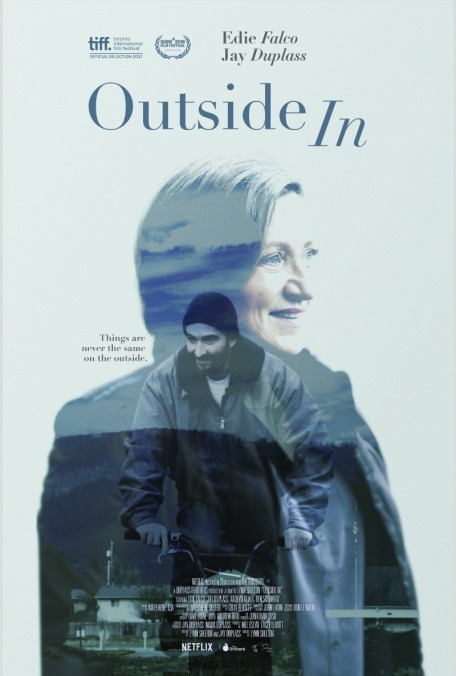Lynn Shelton’s ex-con drama Outside In proves that not all Duplasses are created equal

Having cast Mark Duplass in Humpday (2009) and Your Sister’s Sister (2011), director Lynn Shelton now turns to Mark’s brother, Jay, thereby avoiding the hefty fines presumably levied upon any Duplass-free indie production. Outside In begins with his character, Chris Connelly, being released from prison, where he’s spent the past 20 years (since his freshman year of high school) serving time for an offense that the film deliberately leaves somewhat vague for a while. Like many ex-cons, Chris feels utterly adrift, the world having changed significantly during his long removal from it—smartphones, for example, practically seem like magic, as the internet was only just starting to take off when he went away. Mostly, though, Chris is eager to spend time with his former English teacher, Carol Beasley (Edie Falco), who was instrumental, on a volunteer basis, in securing his release. The two became very close over the years that she worked on his behalf, and Chris’ feelings for her (despite Carol’s marriage) are more than friendly. Meanwhile, he’s stirring similarly ardent feelings in Carol’s teenage daughter, Hildy (Kaitlyn Dever, from Justified), who perceives him as a kindred spirit.
That’s a potentially disturbing love triangle, and Outside In (which Shelton and Duplass co-wrote) doesn’t shy away from its complexities. Carol, in particular, is acutely aware of Chris’ emotional vulnerability and makes a token effort to discourage his romantic attentions, but his passion stirs something in her, blurring the boundary she keeps trying to set. As an actor, Duplass is a bit of a liability here—he’d remained almost entirely behind the camera prior to Transparent, letting Mark do the performing, and that was a sensible arrangement. Chris could have used more of Mark’s nervous energy; Jay somehow never seems more carefully guarded than when he’s striving to appear open and vulnerable. Falco, however, digs deep into a rare big-screen showcase (her last great movie role was in John Sayles’ Sunshine State, way back in 2002), exploring the giddy anxiety of a woman whose charitable hobby now threatens to upend her entire life. It’s a rich, vanity-free performance, providing a much-needed sense of genuine danger.
Still, while this is probably Shelton’s best fully scripted dramatic feature—a big improvement on the incoherent Touchy Feely (2013)—it’s the sort of earnest, conventional movie that many indie directors could make (and many do). Schematic touches abound, from Carol’s wholly unsupportive husband (Charles Leggett), with whom she clearly hasn’t had sex in many years, to the sympathy-inspiring reason why Chris spent two decades behind bars. Every time the actors generate an electrical current, it’s grounded by narrative shortcuts straight out of a screenwriting manual. Shelton’s forte remains live-wire, semi-improvised comedies involving competitive neurotics, at which she’s better than just about anybody else currently working. Maybe she wants to avoid repeating herself, which is admirable. Making the transition from sardonic to serious, though, will ultimately require more than just switching Duplasses.